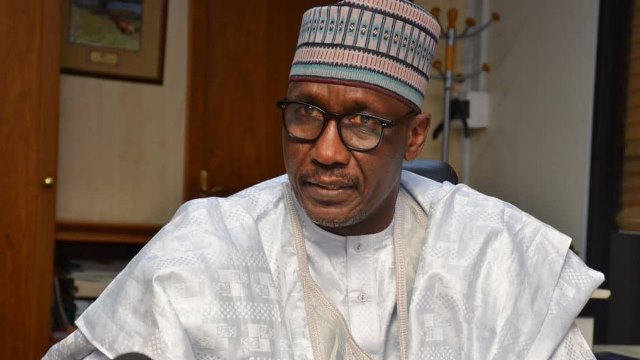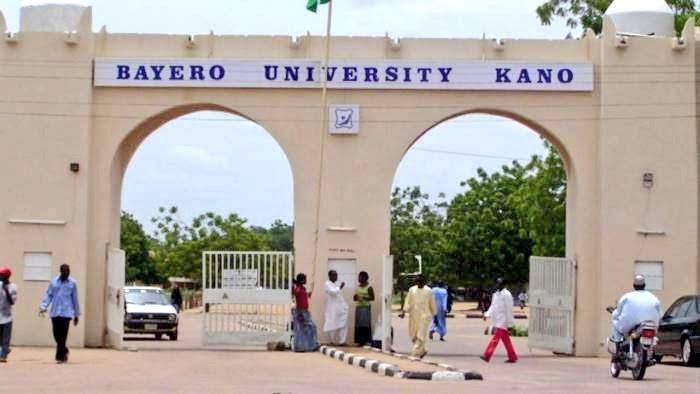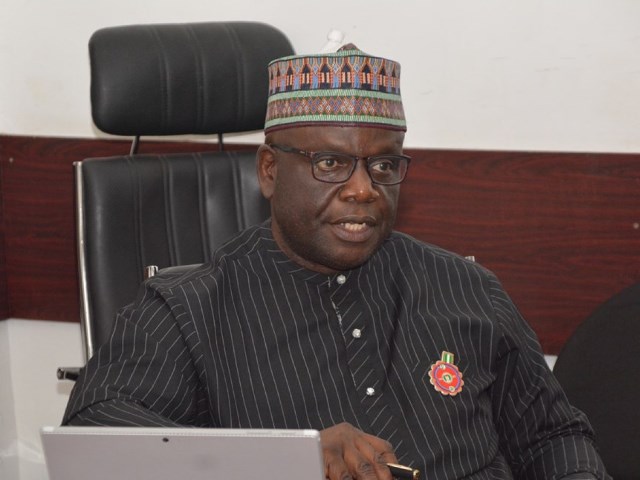Business
NNPC Weekly: 24-hour operation in petrol filling stations in Abuja
By Edith Ike-Eboh and Emmanuel Afonne

The Nigerian National Petroleum Company Limited (NNPC Ltd.) started its week with the introduction of 24-hour operation for over 40 ppl filling stations in Abuja as part of efforts to ensure the disappearance of fuel queues.
The development which ensured round-the-clock operations of these selected filling stations in the Federal Capital Territory (FCT) saw the officials of the NNPC Ltd embark on several unannounced visits.
In one of such unannounced visits in the wee hours, within the week, officials of the company, led by the Group General Manager, Group Public Affairs Division, Malam Garba Muhammad noticed a much-improved situation, with much of the queues vanished.
At the Airport Road branch of the A. A. Rano Filling Station which has over 60 pumps, only two motorists were found filling their car tanks while majority of the fuel attendants in other filling stations were waiting for customers.
A motorist who identified himself as Jika Wakili said the efforts by the NNPC authorities to restore normalcy to the fuel situation were highly commendable.
Wakili urged the management of the company to sustain the tempo and ensure the situation gets even better across other locations in the country.
“The situation is easing now and we are happy with the efforts of the NNPC Management.
“This shows that the leadership of the organisation is working very hard to resolve this issue.
“They should not rest on their oars please,” Wakili added.
Also in the week, the Minister of State for Petroleum Resources, Chief Timipre Sylva called on the United States (U.S.) Government to provide funding support for Nigeria to develop its natural gas resources to serve as alternative source of energy for Europe.
Speaking at a meeting with the U.S. Secretary of Energy, Jennifer Granholm, on the side-line of the just concluded CERA Week in Houston Texas, Sylva said the collaboration between the U.S. and Nigeria in this area would be of immense benefits to both countries as well as the entire globe.
According to Sylva “It is in the interests of the global community that there is alternative supply of gas to Europe.
“The challenge for us to achieve this feat has been lack of infrastructure and we need funding to develop infrastructure for our gas and we believe that the U.S. can provide that funding”.
He told Granholm that Nigeria had abundance of natural gas resources that can meet European gas demands, noting that the problem has been access to funding.
He said as part of efforts to boost gas supplies across the African continent, the country had embarked on the construction of 600 kilometers of the Ajaokuta- Kaduna- Kano (AKK) gas pipeline designed to take gas to Europe via North Africa.
The minister therefore called on the U.S. to provide the needed funding for infrastructure for the exploitation of the huge natural gas in Nigeria.
Speaking on the burning issue of global energy transition, Sylva said for the energy transition programme to be meaningful, the peculiar problems of Africa must be factored into the entire energy transition arrangement.
In her remarks, Granholm expressed the readiness of the U.S. to cooperate with Nigeria to develop her renewable energy sector noting that her government was not against the development of gas or other sources of energy.
She said the U.S. government would be willing to support Nigeria in developing her renewable energy sources and therefore called for a coordinated strategy to pin down specific areas of focus where funding and other supports would be required.
“Investors are interested in funding renewable energy in Nigeria but they are interested in knowing possible areas of focus. We have to work out a structured way to access the fund,” Granholm said.
Sylva who was in an earlier meeting with the U.S. Assistant Secretary of State, Harry Karman, expressed Nigeria’s willingness to develop the different sources of renewable energy such as wind, solar and hydrogen.
In a related development, the Federal Government said its inability to meet the oil production quota allocated to Nigeria by the Organisation of Petroleum Exporting Countries (OPEC) was due to the lack of investments in the oil and gas sector of the economy.
It said the lack of investments was due to the recent spate of exits by International Oil Companies (IOCs) such as Shell and ExxonMobil from Nigeria’s oil and gas sector.
Speaking at the just concluded CERA Week in Houston, Texas, the Minister of State for Petroleum Resources, Chief Timipre Sylva, said the speed with which IOCs were withdrawing investments in hydrocarbon exploitation had contributed significantly to Nigeria’s inability to meet its OPEC target.
Nigeria’s OPEC quota is pegged at about 1.8 million barrels per day but the country produces between 1.3 and 1.4 million barrels per day.
“Lack of investments in the oil and gas sector contributed to Nigeria’s inability to meet OPEC quota. We are not able to get the needed investments to develop the sector and that affected us.”
Sylva also cited security challenges as another major factor that contributed to the lack of significant growth of the sector, adding that the drive towards renewable energy by climate enthusiasts had discouraged funding for the industry.
The minister, however, called for a change of attitude stressing that in decades to come hydrocarbon would continue to play a central role in meeting the energy needs of the world.
He told delegates at the event that though Nigeria was in full support of energy transition, the country and the African continent should be allowed to develop at its own pace.
This, he said would enable African countries meet the energy needs of the over 600 million people who had no access to any form of power in Africa.
In keeping with its philosophy of touching the lives of citizens in positive ways, the Nigerian National Petroleum Company Limited (NNPC Ltd) has donated state-of-the-art building complexes to the Ahmadu Bello University (ABU) and Bayero University Kano (BUK) to serve as Centre for Inland Basin Studies and Civil Engineering Department respectively at both institutions.

The projects which were inaugurated and handed over to the management of both schools recently are part of the Company’s Corporate Social Responsibility programme.
The Centre for Inland Basin Studies is a storey building equipped with modern lecture halls, library and seminar rooms, and an equipment section and laboratories, including a dedicated section for automation. It is domiciled at the Geology Department of the ABU and will serve as the hub for research on hydrocarbon resources in the inland basin.
Speaking at the event, the Group Executive Director, Corporate Services, Hajiya Aisha Katagum, who represented the Group Managing Director/Chief Executive Officer of NNPC Ltd, said such support to institutions of higher learning were critical to the sustained growth of the Nigerian petroleum industry.
“As a technology driven energy company, NNPC believes that real progress can only be possible, when corporate organisations support and strengthen educational institutions, with new knowledge and better ways of delivering services to humanity.
“As global energy transition continues to gain traction, NNPC as National Oil Company, the economic backbone, will continue to collaborate with Nigerian universities to support meaningful research, technology development and innovation across different fields of our operations especially as NNPC transit to a fully commercial energy company of global excellence.”
The Chancellor of ABU, Alhaji Kabiru Bala, who commended NNPC for the timely intervention, spoke on the significance of the project.
Some students of the two beneficiary institutions also expressed delight at the intervention and how the projects would enhance their learning.
The Group Executive Director, Corporate Services, was accompanied by the Group General Manager, Engineering and Technology Division, General Manager, Chad Basin Operations, Coordinator, NNPC Intervention Projects and Manager, Corporate Social Responsibility, among others.
Also present at the event were the Deputy Vice Chancellor, Administration, Professor Ahmed Ibrahim, the Registrar, Bursar, Deans of Faculties, Heads of Departments, and the Chairman of Zaria Local Government Area.
Meanwhile, the Nigerian Midstream and Downstream Petroleum Regulatory Authority (NMDPRA) assured stakeholders in the aviation sector that there was no scarcity of Aviation Turbine Kerosene (ATK), also known as aviation fuel.
The Authority gave the assurance at an investigative hearing of the House of Representatives’ Adhoc Committee on High Cost of Aviation Fuel at the National Assembly Complex on Thursday, in Abuja.
NMDPRA Executive Director, Distribution Systems, Storage and Retailing Infrastructure, Mr Ogbugo Ukoha, who spoke at the hearing, dispelled insinuations that the rise in the price of the product was a result of short supply.
Ukoha stressed that there was robust supply of ATK with enough stock to last for 34 days.
Putting the issue of ATK price hike and its effect on the safety of airline operations in perspective,
Also speaking, the Director General of the Nigerian Civil Aviation Authority, Capt. Musa Nuhu, stated that the steep rise in the price of ATK from N190 per litre barely a year ago to N670 per litre was a worrisome trend.
Nuhu said the development could sooner or later begin to affect the safety of operations.

He noted that under normal circumstances, fuel was supposed to be responsible for about 30 per cent of an airline’s cost of operation but was currently taking up about 50 per cent.
“For me, as the regulator of the industry, this is of significant concern for me, God forbid, I don’t want to come before this committee to explain why A or B happened”
The Chairman of Air Peace and Vice Chairman of the Airline Operators of Nigeria (AON), Mr Allen Onyema, said he was surprised at the report from the NMDPRA that there was 34-day sufficiency because airlines have had to cancel flights over the past few weeks owing to non-availability of ATK.
“We are subsidising what each and every one of you is using in flying. But we cannot continue, we cannot last for the next 72 hours doing that as we are indebted.
“We don’t want AMCON to come after us. I am surprised he said they have enough volumes of ATK to last for 34 days”
In his intervention, Group Managing Director/Chief Executive Officer of NNPC Ltd., Malam Mele Kyari, pledged to collaborate with the operators, regulators, marketers and other stakeholders in the aviation sector to ensure effective distribution of ATK.
The NNPC boss assured that it was the statutory responsibility of the national oil company to eliminate any gap in the supply chain of petroleum products and guarantee nation’s energy security.
Kyari corroborated the position of the NMDPRA that there was enough stock of ATK in the country.
He also advised operators of commercial airlines to develop proper commercial arrangements with ATK suppliers in order to hedge themselves from price fluctuations arising from market volatility.
On his part, the Deputy Speaker of the House of Representative and Chairman of the Adhoc Committee, Rep. Idris Wase, commended the GMD for his exceptional leadership qualities and appealed to all stakeholders to make the Petroleum Industry Act (PIA) work.
He said that the committee would get to the bottom of the issue as mandated by the House of Representatives.
“All we want is to make the PIA work and make Nigerians not to regret. More investigations will be done as to the reality of what is on ground.
“As a parliament we will carry out our investigation and ensure that Nigerians benefit from whatever resources God has made available to them”.
Still in the week under review, NNPC Ltd joined the rest of the world to mark the International Women’s Day (IWD) by reflecting on the importance of breaking the bias, which was the theme of the celebration.
IWD is a global day celebrating the social, economic, cultural and political achievements of women. The day also marks a call to action from both men and women for accelerating gender parity.
The celebration was led by the Company’s Group Executive Director, Corporate Services, Mrs Aisha Farida Katagun.
Also present were the Group General Manager, Human Resources, Mr Yahaya Yunusa and other top management staff of the company to lend their support.
Send Us A Press Statement Advertise With Us Contact Us
And For More Nigerian News Visit GWG.NG

